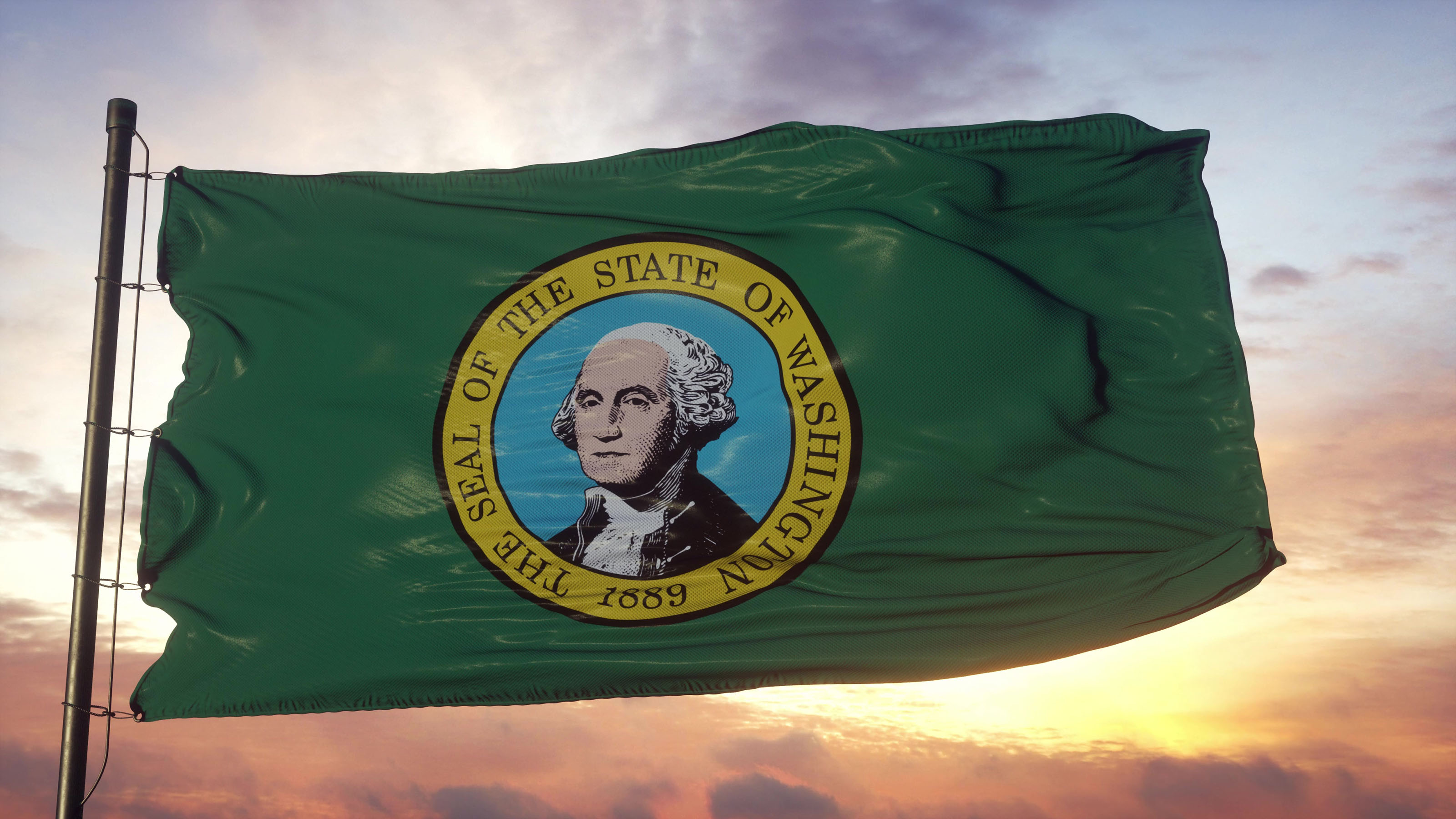Washington State Tax Guide
Explore Washington's state tax rates for income, sales, property, retirement, and more. Learn how Washington compares nationwide.


Profit and prosper with the best of Kiplinger's advice on investing, taxes, retirement, personal finance and much more. Delivered daily. Enter your email in the box and click Sign Me Up.
You are now subscribed
Your newsletter sign-up was successful
Want to add more newsletters?
Navigating the complexities of state taxes can be daunting, but understanding Washington state's tax landscape is essential for residents and newcomers alike.
In this guide, we'll explore key components of The Evergreen State's tax system, from income and sales taxes to property taxes and retirement benefits.
Washington state tax: Overview
Washington is one of only nine states with no income tax, which is a big draw for many residents. Property taxes are fairly average, but where the state stands out is its high sales tax rate.
From just $107.88 $24.99 for Kiplinger Personal Finance
Become a smarter, better informed investor. Subscribe from just $107.88 $24.99, plus get up to 4 Special Issues

Sign up for Kiplinger’s Free Newsletters
Profit and prosper with the best of expert advice on investing, taxes, retirement, personal finance and more - straight to your e-mail.
Profit and prosper with the best of expert advice - straight to your e-mail.
The state's controversial capital gains tax was upheld by the Supreme Court, adding a new twist to the tax story. How much you pay often depends on the kind of income you have and where you live, making it a bit of a mixed bag for residents.
As Kiplinger has reported, the state's capital gains tax recently increased. For more information, see Washington Approves Capital Gains Tax Increase for 2025.
[Data for this state tax guide was gathered from several sources including the U.S. Census Bureau, the state’s government website, the Sales Tax Handbook, and the Tax Foundation. Property taxes are cited as a rate percentage rather than the assessed value.]
Washington state Income tax

There is no state personal income tax in Washington. However, unlike other states with no personal income tax, Washington State now has a capital gains tax of 7%.
Washington state retirement taxes
- Pensions: Not taxable
- 401(k) and IRA Distributions: Not taxable
- Social Security: Not taxable
Washington sales tax

Washington's state sales tax rate is 6.5%. Localities can add up to 2.46% to that, with the average combined rate at 8.96%, according to the Tax Foundation.
- Groceries: Exempt
- Prescription drugs: Exempt
- Clothing: Taxable
How much are property taxes in Washington?

In Washington, the average effective property rate is 0.76%.
Washington Property Tax Breaks for Retirees
Property tax exemption program: Qualified homeowners may have their property taxes reduced. Additionally, this program can prevent excess taxes if the market value increases by freezing the home's taxable value. To qualify for this program, you must meet specific requirements by the end of the assessment year.
- Must be at least 61 years of age (at least 57 if the surviving spouse of a qualified participant)
- Must own your home
- Must have lived in the home for more than half the year
- Combined disposable income must not exceed the county threshold.
Property tax deferral: Adults 60 or older with disposable income below the county-based threshold may also qualify for the state's tax deferral program.
The program allows qualified homeowners to defer property taxes or special assessments on their residences.
The state pays the taxes on behalf of the homeowner and files a lien to indicate that the state has an interest in the property. The deferred taxes, plus 5% interest, must be repaid to the state when the owner passes away, sells, or otherwise moves from the home.
For more information on the programs above, see Property tax exemptions and deferrals
Washington gas tax

- Gasoline: $0.45 per gallon
- Diesel: $0.45 per gallon
Source: Sales Tax Handbook
Washington taxes on alcohol and tobacco
Product | Tax Amount |
Cigarettes | $3.03 per pack |
Other tobacco products | 95% of wholesale |
Source: Sales Tax Handbook
Product | Tax Amount |
Wine | $0.87 per gallon |
Beer | $0.26 per gallon |
Liquor | $14.27 per gallon |
Source: Sales Tax Handbook
Washington estate and inheritance taxes
- An estate tax is imposed by Washington on estates exceeding $2.193 million (the exemption threshold is subject to adjustment each year for inflation).
- Tax rates range from 10% to 20%.
- The state offers an additional $2.5 million deduction for family-owned businesses valued at less than $6 million.
There is no inheritance tax in Washington.
Washington capital gains tax
Washington's capital gains tax is 7% on the sale or exchange of individual long-term capital assets (e.g., stocks, bonds, business interests, etc.) that exceed $250,000. Only the portion of gains above the threshold is subject to the tax, and some assets are exempt from the tax.
The capital gains tax was challenged in court, but the Washington Supreme Court upheld the capital gains tax in March 2023 as a valid excise tax under the state's constitution.
As mentioned, the levy was recently increased for some for 2025.
Read More
Profit and prosper with the best of Kiplinger's advice on investing, taxes, retirement, personal finance and much more. Delivered daily. Enter your email in the box and click Sign Me Up.

Kelley R. Taylor is the senior tax editor at Kiplinger.com, where she breaks down federal and state tax rules and news to help readers navigate their finances with confidence. A corporate attorney and business journalist with more than 20 years of experience, Kelley has helped taxpayers make sense of shifting U.S. tax law and policy from the Affordable Care Act (ACA) and the Tax Cuts and Jobs Act (TCJA), to SECURE 2.0, the Inflation Reduction Act, and most recently, the 2025 “Big, Beautiful Bill.” She has covered issues ranging from partnerships, carried interest, compensation and benefits, and tax‑exempt organizations to RMDs, capital gains taxes, and energy tax credits. Her award‑winning work has been featured in numerous national and specialty publications.
-
 Why Some Michigan Tax Refunds Are Taking Longer Than Usual This Year
Why Some Michigan Tax Refunds Are Taking Longer Than Usual This YearState Taxes If your Michigan tax refund hasn’t arrived, you’re not alone. Here’s what "pending manual review" means and how to verify your identity if needed.
-
 If You'd Put $1,000 Into Caterpillar Stock 20 Years Ago, Here's What You'd Have Today
If You'd Put $1,000 Into Caterpillar Stock 20 Years Ago, Here's What You'd Have TodayCaterpillar stock has been a remarkably resilient market beater for a very long time.
-
 Good Stock Picking Gives This Primecap Odyssey Fund a Lift
Good Stock Picking Gives This Primecap Odyssey Fund a LiftOutsize exposure to an outperforming tech stock and a pair of drugmakers have boosted recent returns for the Primecap Odyssey Growth Fund.
-
 3 Smart Ways to Spend Your Retirement Tax Refund
3 Smart Ways to Spend Your Retirement Tax RefundRetirement Taxes With the new "senior bonus" hitting bank accounts this tax season, your retirement refund may be higher than usual. Here's how to reinvest those funds for a financially efficient 2026.
-
 5 Retirement Tax Traps to Watch in 2026
5 Retirement Tax Traps to Watch in 2026Retirement Even in retirement, some income sources can unexpectedly raise your federal and state tax bills. Here's how to avoid costly surprises.
-
 First the Penny, Now the Nickel? The New Math Behind Your Sales Tax and Total
First the Penny, Now the Nickel? The New Math Behind Your Sales Tax and TotalRounding Tax A new era of "Swedish rounding" hits U.S. registers soon. Learn why the nickel might be on the chopping block, and how to save money by choosing the right way to pay.
-
 Over 65? Here's What the New $6K Senior Tax Deduction Means for Medicare IRMAA
Over 65? Here's What the New $6K Senior Tax Deduction Means for Medicare IRMAATax Breaks A new tax deduction for people over age 65 has some thinking about Medicare premiums and MAGI strategy.
-
 How to Open Your Kid's $1,000 Trump Account
How to Open Your Kid's $1,000 Trump AccountTax Breaks Filing income taxes in 2026? You won't want to miss Form 4547 to claim a $1,000 Trump Account for your child.
-
 In Arkansas and Illinois, Groceries Just Got Cheaper, But Not By Much
In Arkansas and Illinois, Groceries Just Got Cheaper, But Not By MuchFood Prices Arkansas and Illinois are the most recent states to repeal sales tax on groceries. Will it really help shoppers with their food bills?
-
 7 Bad Tax Habits to Kick Right Now
7 Bad Tax Habits to Kick Right NowTax Tips Ditch these seven common habits to sidestep IRS red flags for a smoother, faster 2026 income tax filing.
-
 10 Cheapest Places to Live in Colorado
10 Cheapest Places to Live in ColoradoProperty Tax Looking for a cozy cabin near the slopes? These Colorado counties combine reasonable house prices with the state's lowest property tax bills.